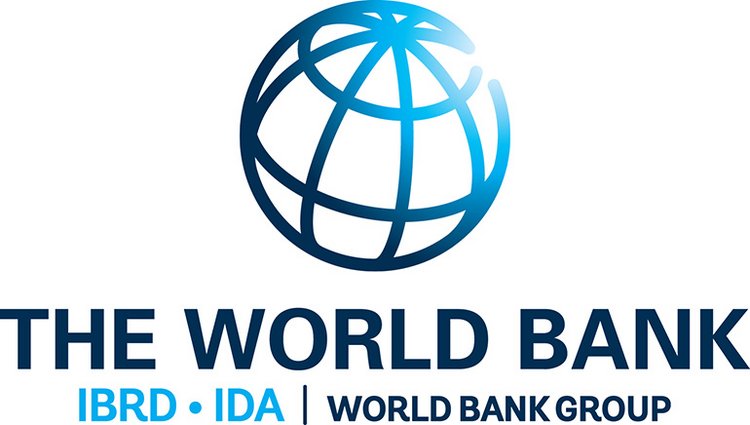 by World Bank, Washington, DC, June 2016
World Bank Sri-Lanka-Competitiveness-20-FINAL
by World Bank, Washington, DC, June 2016
World Bank Sri-Lanka-Competitiveness-20-FINAL
INTERNATIONAL DEVELOPMENT ASSOCIATION
PROGRAM DOCUMENT FOR
A PROPOSED CREDIT
IN THE AMOUNT OF US$ 100 MILLION
TO
DEMOCRATIC SOCIALIST REPUBLIC OF SRI LANKA
FOR THE
COMPETITIVENESS, TRANSPARENCY AND FISCAL SUSTAINABILITY
DEVELOPMENT POLICY FINANCING
Introduction 1. This program document describes the Development Policy Financing (DPF) operation to the Democratic Socialist Republic of Sri Lanka as a stand‐alone single tranche operation for an amount of US$ 100 million. The proposed DPF will support the long‐term development of the Sri Lankan economy through a renewed engagement on reforms to eliminate obstacles to private sector competitiveness, enhance transparency and public sector management, and improve fiscal sustainability. The actions supported by the proposed DPF represent an important initial set of reforms that will provide a platform and momentum for a longer‐term policy reform package. 2. Under its first pillar, the proposed DPF will support significant actions aimed at enabling private sector competitiveness. Following presidential and parliamentary elections in 2015, the new coalition Government has set out an ambitious vision for Sri Lanka which focuses to a great extent on enhancing competitiveness of the private sector as a way to supporting job creation, economic diversification and strengthening the country’s presence in international trade. This operation supports the attainment of the Government of Sri Lanka’s vision through an initial set of actions that will contribute to enhance the ability of the country to address regulatory obstacles to trade; attract and retain FDI; and enhance access to finance to the private sector. 3. The DPF’s second pillar supports reforms to enhance transparency and public sector management. Establishing a stronger legal framework to increase transparency through a Right to Information (RTI) framework, strengthening the audit function, and improving the management of public resources will provide for greater accountability and responsiveness of Government in carrying out its functions, particularly regulatory functions and delivery of public services. Greater transparency regarding government policies and services provides for more predictability, thereby enhancing the business environment. Improved capacity of the state to manage its resources effectively is integral to delivery of better services, including investments in human and physical capital, which are enabling factors for competitiveness. Better public financial management should also contribute to improving fiscal performance. Sound public finances are an important condition for macroeconomic stability, which in turn impacts Sri Lanka’s competitiveness. 4. The DPF’s third pillar supports measures to improve fiscal sustainability. A sustainable fiscal environment is critical for improving the investment climate and competitiveness. This pillar contributes to this result by supporting actions to reduce fiscal revenue loss from tax holidays (which is partially responsible for the low and declining tax collection) and to increase the efficiency of debt management. These actions will present a first step of a medium‐term program to enhance revenue, in a simpler, fairer and more efficient way and to strengthen debt management, which will lower the cost and vulnerability to shocks of the public debt portfolio. This is expected to contribute to fiscal sustainability and create fiscal space for the delivery of public services, social spending and capital investment, which are integral to the country’s competitiveness in an aging society. Strengthened debt management will also contribute to better functioning and more liquid domestic capital markets, which will support competitiveness. 5. The actions supported by the proposed DPF represent an important initial set of actions that can be expected to be part of longer‐term reform packages under consideration. The reforms supported by 1 �the proposed DPF address significant well‐identified challenges to the country’s competitiveness, transparency, and fiscal sustainability. They reflect immediate priority actions pursued by the Government of Sri Lanka (GoSL) as a starting point for structural transformation. Going forward, the structural transformation needed to achieve the country’s development objectives will entail additional reforms in the medium and long term. The prioritization of those reforms is expected to be defined through the articulation of a development strategy by the Government scheduled to be finalized by the end of calendar year 2016. The Government has expressed interest in a future programmatic DPF series to accompany this development strategy. 6. This operation is presented in a context of an expected turnaround in fiscal sustainability. Sri Lanka has suffered from chronically low revenues as a percentage of Gross Domestic Product (GDP) over the past decade. Fiscal policy in past years has not adequately addressed this structural challenge, raising concerns on the sustainability of the fiscal path and the level of public debt, particularly given the short‐ term risk of significant foreign exchange outflows in 2016. Recently implemented fiscal measures and the recently approved International Monetary Fund (IMF) three‐year Extended Fund Facility (EFF)1 program will address the short‐term risks, while the country is committing to a medium‐term fiscal consolidation path. The prior actions in this operation are consistent and complementary to the structural reform areas in the IMF’s operation. This is a prerequisite for fully realizing the impact of the broader set of reforms supported by this operation to enhance competitiveness, public sector management and fiscal sustainability.
by World Bank, Washington, DC, June 2016 World Bank Sri-Lanka-Competitiveness-20-FINAL